Animal Farm
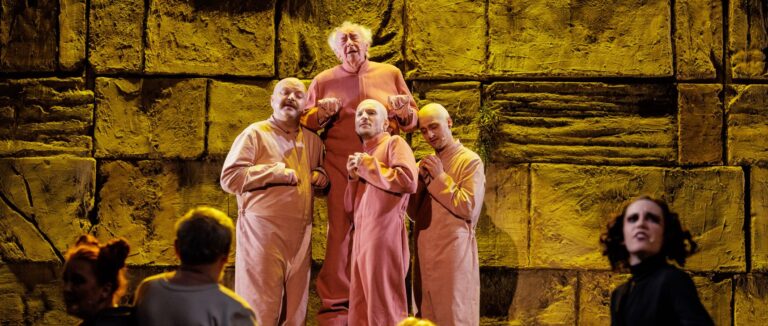
textMartyna Majok
Achival
2h 10 minutes, no intermission
Premiere date 20/09/2019
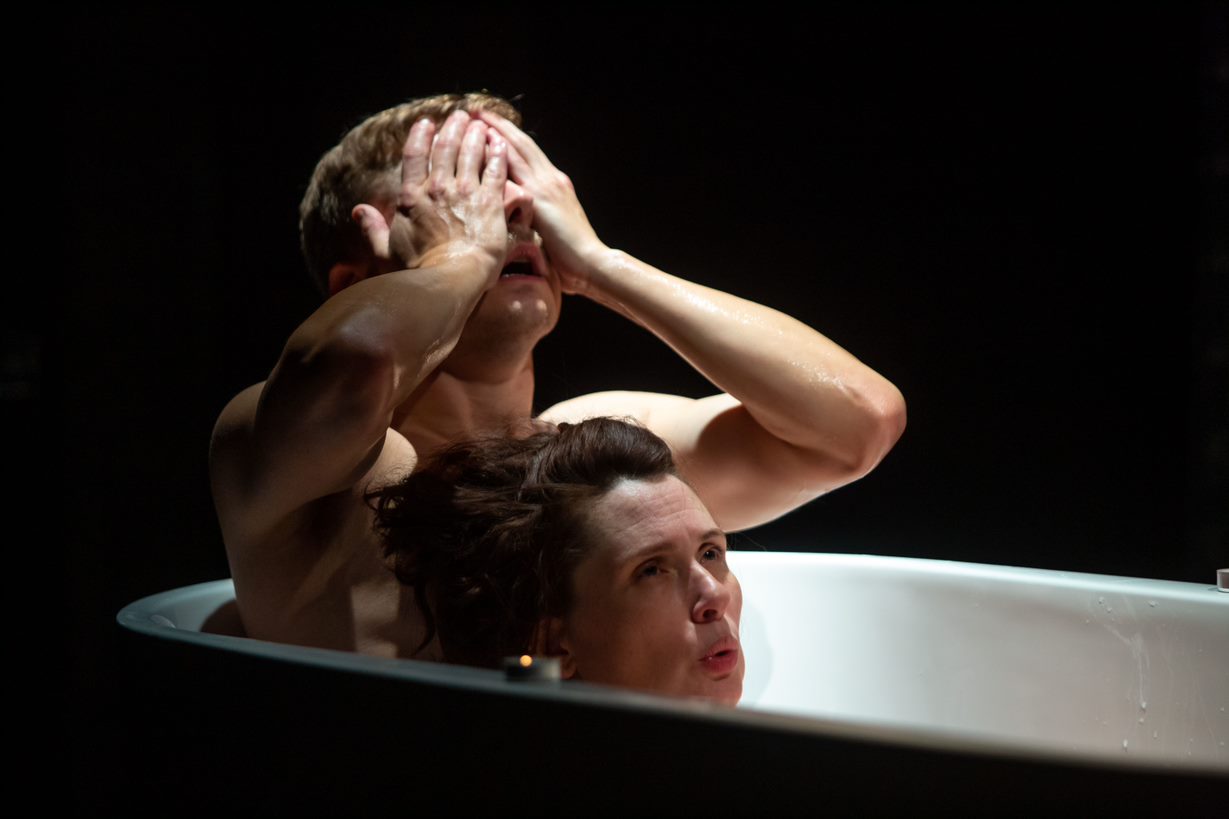
Regular ticket: 40 zł
Concessionary ticket: 35 zł.
Information for wheelchair users: due to the varying setup of the playing space, please contact the Viewer Service Office before booking/purchasing tickets to obtain information on the availability of appropriate seats. Email: bow@teatrslaski.art.pl, phone number: +48 32 258 89 67.
Four people. Two stories. One price.
At one point, the lives of Eddie and Ani have changed beyond recognition. Maybe earlier the fate of their marriage was not idyllic, but at least they were both independent. Today, only one of them has this privilege...
John is a young and ambitious man who is continuously successful. In everyday life, however, he cannot cope with the simplest activities. That is why Jess, who needs some extra money, appears in his apartment...
The Pulitzer award-winning text “Cost of Living” by Martyna Majok is a story about piercing loneliness, the more acute because it is experienced in the presence of another person. Its first Polish performance was prepared at Teatr Śląski by Małgorzata Bogajewska, who, through her adaptation, asks what “disability” really means. Is it merely an another harmful label? Or maybe we all experience it ourselves, in a different aspect of everyday life, often without realising it? Are the characters of the story facing someone else’s or maybe their own disability? “Cost of Living” is an extremely intimate and touching story about strength, but also helplessness, love and loneliness – above all, however, about hope.
As the author said during one interview: “I’ve always been excited that my play Cost of Living was produced in the theatre that staged Hunting Cockroaches by Janusz Głowacki in 1987 – exactly thirty years after Głowacki’s premiere. Ewa Zadrzyńska-Głowacka took part in Cost of Living, after seeing my earlier spectacle Ironbound. I love situations that combine the experience of the people and countries they come from. Especially when they connect strangers in a wonderful, unexpected way beyond the times in which they live. At the same time, I must add that there are many playwrights from many countries who are trying to understand what it is like to live between the homeland and the place of emigration; how it is when you leave your family and choose a new kind of life. They are even connected by the fact that they use theatre and black comedy to investigate these experiences. Now I am proud to be connected with the tradition of Polish playwrights.”
Majok’s pieces can be found in the repertoires of American theatres, but also the theatres of Canada, Australia, New Zealand, and even Israel or Romania. Currently, after a long wait, they also hit Polish stages.
The co-producer of the premiere is Katowice Miasto Ogrodów – Instytucja Kultury im. Krystyny Bochenek. The premiere inaugurated the international “Open The Door” Festival in Katowice in 2019.
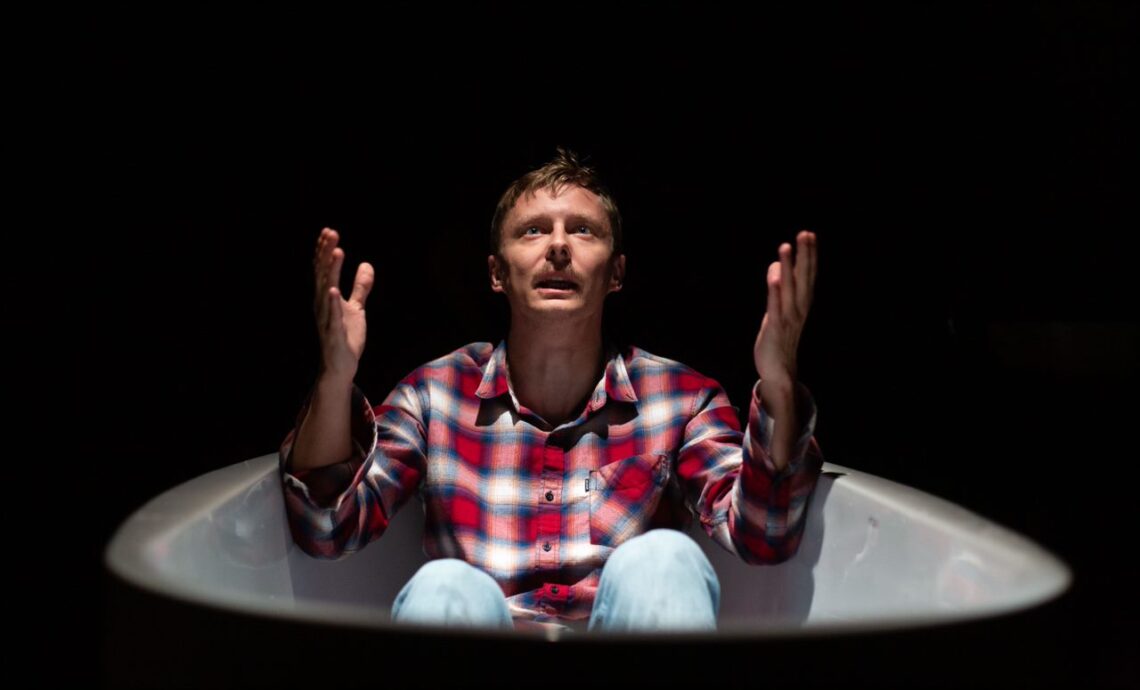

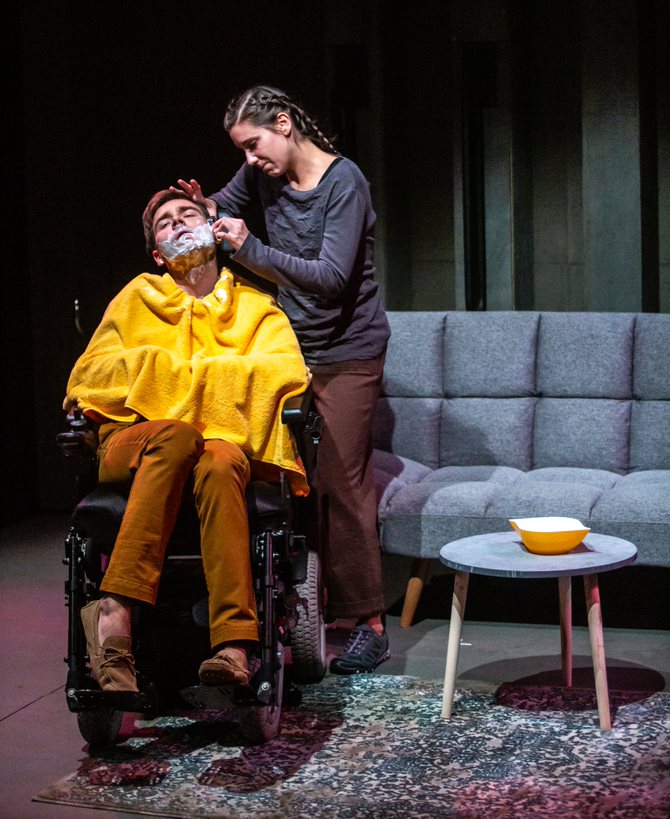
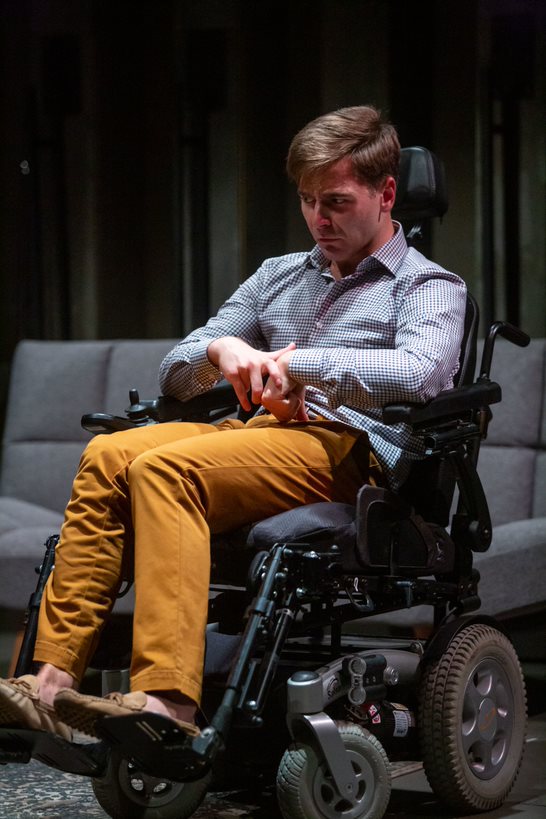
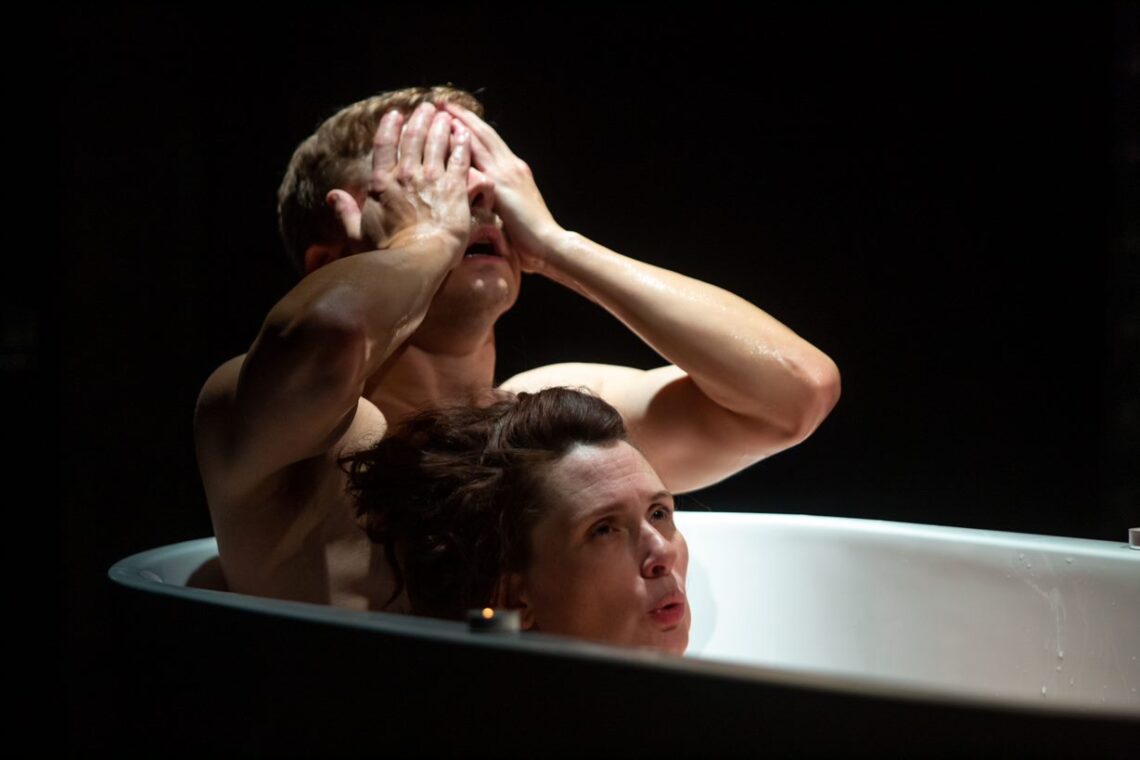
The Anglo-Saxon style of theatre, with a film narrative, movingly and efficiently resounded on the chamber stage of Teatr Śląski.
Witold Mrozek, Gazeta Wyborcza
The language of the characters is packed with profanities, which are an expression of helplessness, confusion, anger, sometimes covering deep feelings. All this was brought out by the actors in Małgorzata Bogajewska’s Katowice performance.
Katarzyna Flader-Rzeszowska, Teatr
The author and director effectively avoid the trap of “correctness”, that is, the division into Miserable Victims and the Rest of the World. In this performance all four are just humans; with the same dose of virtues and flaws. Their physicality is different, but not the way they feel emotions. Their relationships are complicated, but the need for closeness and the sadness of loneliness – the same. The disabled are not better here because they are disabled, and the able-bodied are not more resistant to blows because they are able-bodied. They all suffer in the same way, they are equally malicious, equally able to enjoy and have similar moments of weakness. (…) The measure of the problem here was the reaction of the audience. When the scene had really funny lines, uttered by disabled characters, the audience was afraid of their own laughter. For how can you laugh at a cripple…? That is wrong! Well, no, a disabled person is a person and has the right to be funny. This is what this spectacle is about.
Henryka Wach-Malicka, Dziennik Zachodni


Article
Olga Tokarczuk, the 2018 Nobel Prize-winning Polish writer, has released her extraordinary novel ‘The Empusium’ in 2024. Robert Talarczyk adapted
Read o: 'The Empusium' with English surtitles back on our stage
Article
On summer Saturdays we will make Katowice dance again by Dancing Wyspianski! Put on your dancing shoes and get ready
Read o: Dancing Wyspianski - open air dances this summerTa strona korzysta z plików cookie, aby poprawić wrażenia podczas poruszania się po witrynie. Spośród nich pliki cookie, które są sklasyfikowane jako niezbędne, są przechowywane w przeglądarce, ponieważ są niezbędne do działania podstawowych funkcji witryny. Używamy również plików cookie stron trzecich, które pomagają nam analizować i rozumieć, w jaki sposób korzystasz z tej witryny. Te pliki cookie będą przechowywane w Twojej przeglądarce tylko za Twoją zgodą. Masz również możliwość rezygnacji z tych plików cookie. Jednak rezygnacja z niektórych z tych plików cookie może wpłynąć na wygodę przeglądania.